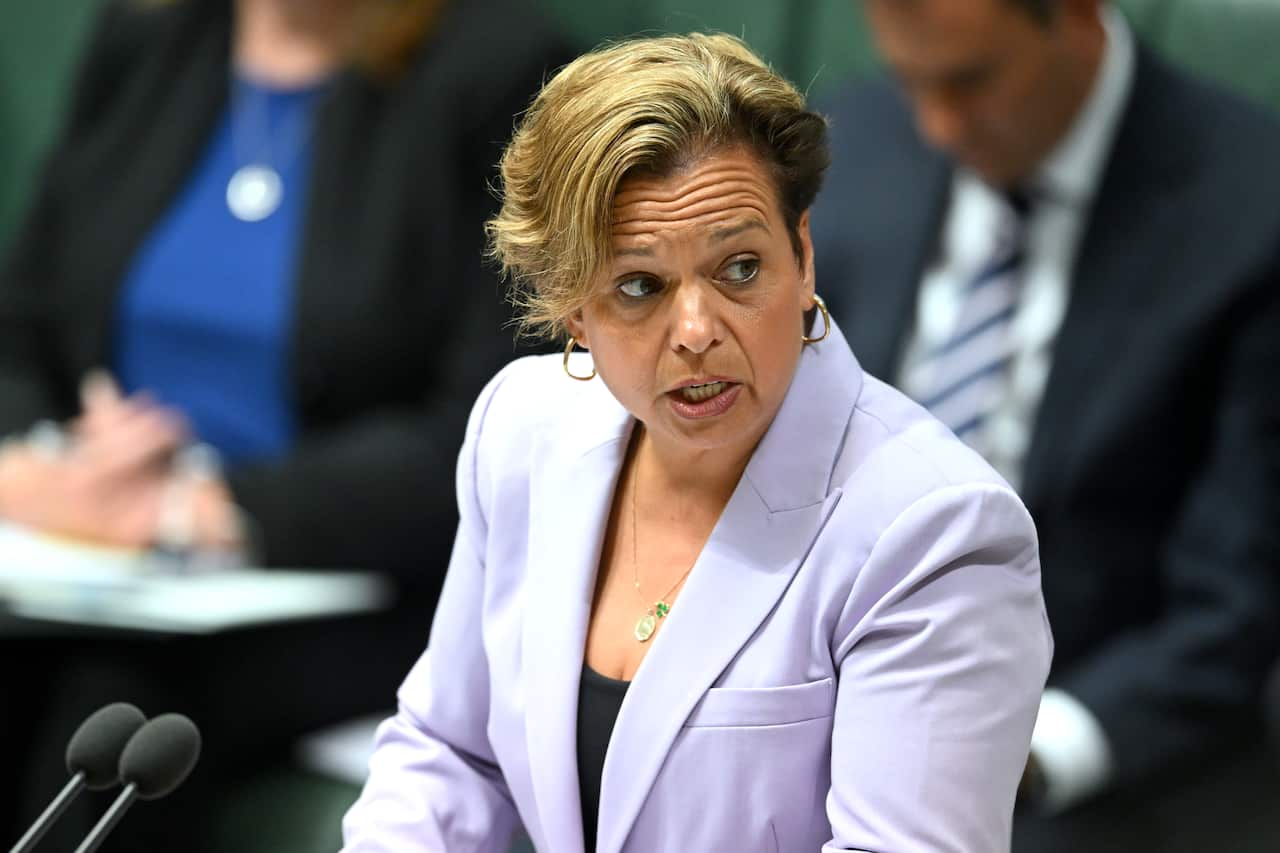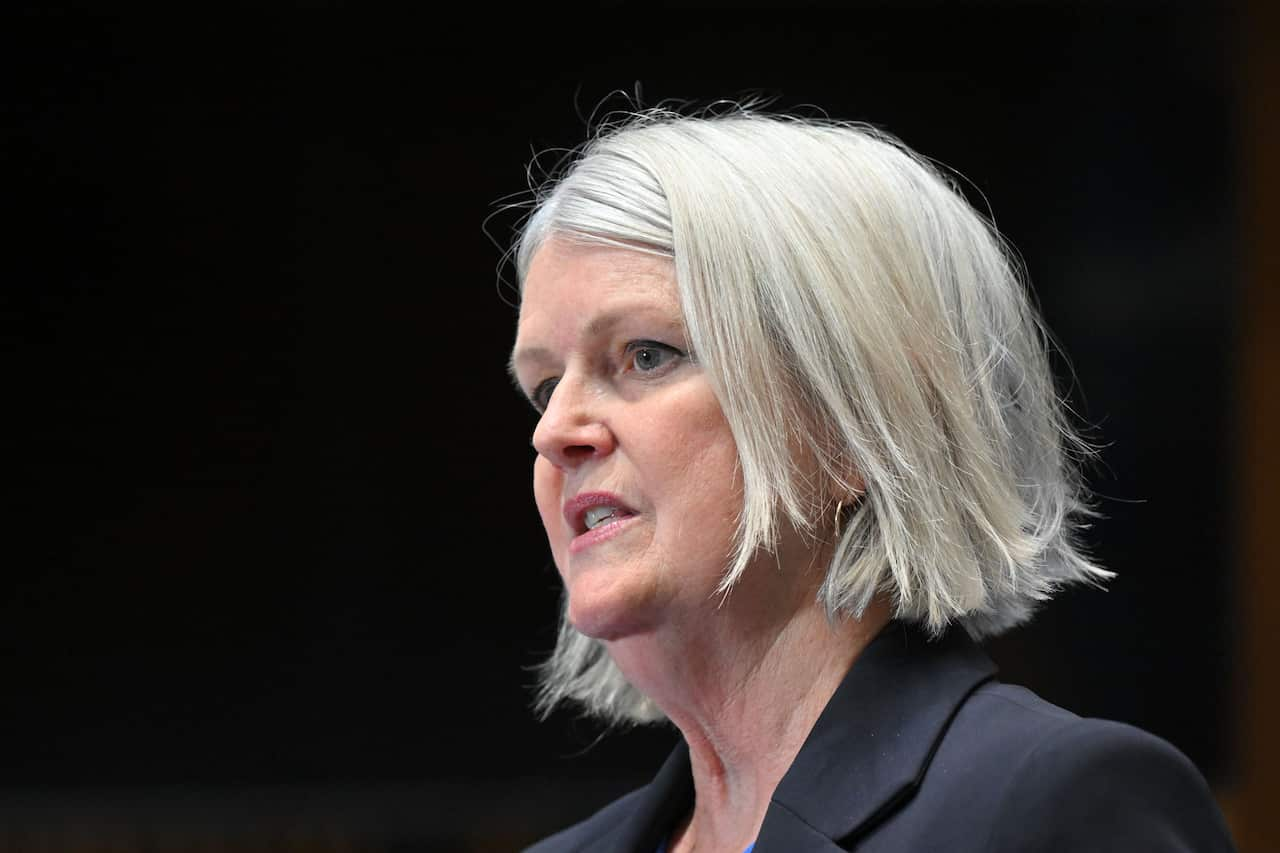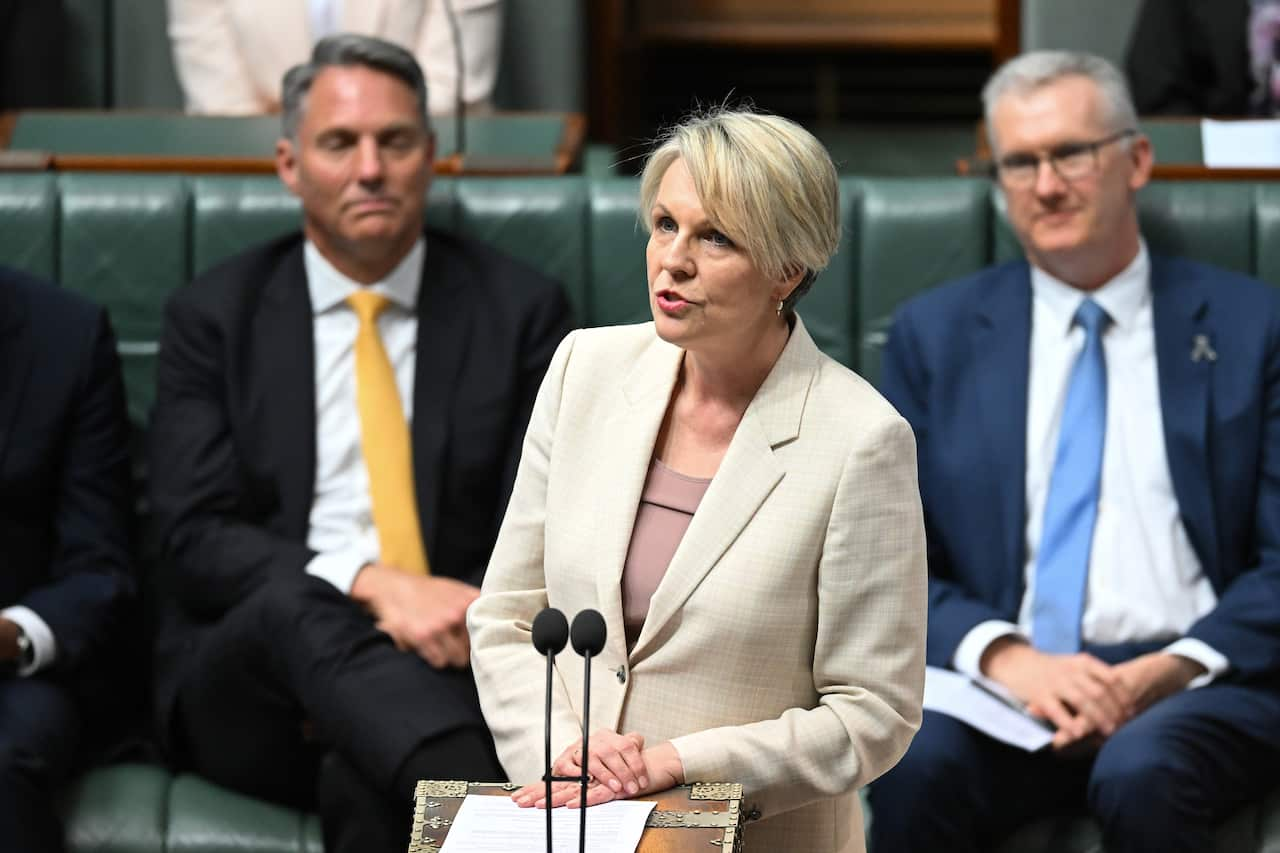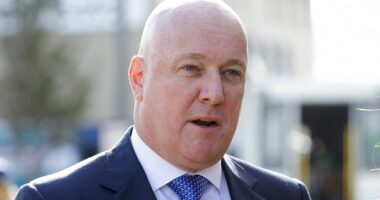Share this @internewscast.com
Upon contacting Centrelink, Button learned that a debt collector had taken the funds, alleging she owed a longstanding robodebt.

Felicity Button (pictured) was among the lead plaintiffs in the robodebt class action and is featured in SBS’s docu-drama, The People vs Robodebt. Source: SBS News / Simon Morris
Several years prior, Button had received income support from Centrelink — Youth Allowance and Austudy — while studying for her nursing degree and working several jobs. However, that support ended in 2015.
An investigation by a royal commission, spanning 2022 to 2023, labeled robodebt as a “crude and cruel system” that was “neither fair nor legal” and unfairly criminalized many individuals.
She is one of the numerous robodebt victims pushing for reparations and demanding accountability.
‘Financial vindication’ or ‘accountability avoided’?
“If we had been able to prove our case in court, as we expected, it would have allowed group members who endured distress or additional financial harm, or had lost loved ones to suicide, to seek financial compensation for their suffering,” he explains.
This was crucial because many in the group felt that the initial class action failed to adequately address these issues, and didn’t hold the public officials involved fully responsible for their actions.
If approved by the Federal Court, the government said this would be the largest class action settlement in Australian history. According to Gordon Legal, it would deliver more than $2.4 billion in financial redress for victims.

Attorney-General Michelle Rowland said settling the claim is the “just and fair thing to do”. Source: AAP / Lukas Coch
For Button, the settlement brought some relief.
“Ten years on from when robodebt commenced, no-one responsible for its design, implementation and continuation has been publicly held accountable in a way that delivers justice for its victims and their families,” she said in a statement.

Australian Council of Social Service chief executive Cassandra Goldie said the settlement does not “deliver full justice” for robodebt victims. Source: AAP / Mick Tsikas
Christopher Rudge is a lecturer at Sydney Law School, researching welfare law. Beyond the settlement being “a day of financial vindication” for victims, he also believes it’s “a day of accountability avoided for those who designed the scheme”.
“This isn’t just a payout; it’s the price the government was willing to pay to avoid a public trial based on the royal commission’s evidence of misfeasance in public office,” he says.
The settlement ensures the central legal claim of the litigants will never be tested in court.
“What we think we’ve been able to do is to shine a light on what was unlawful conduct and to ensure that people harmed by it get some sense of closure and some redress for the harm that was caused to them,” he says.
What happens now?
Meanwhile, an investigation into six referrals from the royal commission is being led by the National Anti-Corruption Commission (NACC), based on an announcement made by an independent decision maker for the NACC in February. The referrals were contained in a sealed chapter, recommending individuals for civil action or criminal prosecution.
“The powers of the NACC are primarily referral-based. It doesn’t have the power to prosecute, lay charges or convict in its own right.”
“And I want to see further mental health support for people who lost more than money can recoup.
Another scheme: Addressing a historical debt calculation
A bill introduced to parliament seeks to address income apportionment by validating its use for past calculations, and setting up a resolution scheme for those with potentially affected debts.

Social Services Minister Tanya Plibersek introduced a bill to Parliament on 4 September, seeking to address income apportionment by validating its use for past calculations and establishing a resolution scheme for those with potentially affected debts. Source: AAP / Lukas Coch
This follows the Federal Court’s approval of a method for the government to recalculate debts owed in July.
“A single debt could be affected by both,” he says.
Automatic cancellation of job seeker payments ‘unlawful’
“A further 45 job seekers received automated cancellations after the secretary’s decision to pause cancellations, when they should not have,” ombudsman Iain Anderson said in a report, published on 6 August.
In a statement to SBS News, a DEWR spokesperson confirmed it has accepted all recommendations from the ombudsman’s report, noting it and Deloitte’s review made “a number of important findings and recommendations, including areas for urgent action and longer-term improvements”.
The department is taking immediate steps to address the urgent actions identified.
The spokesperson confirmed all payment reductions and cancellations remain paused.
SBS News understands Deloitte is managing the matter.
“When a policy initiative is pursued relentlessly, internal decision-making becomes siloed and overly goal-oriented, and decisions are made in an unexamined way that is contrary to law. That is what has happened here, just as in the other schemes, although in a very different way.”
Could robodebt happen again?
“If we’re not careful and if there isn’t a paradigm shift … we could see it [robodebt] happening again.”













